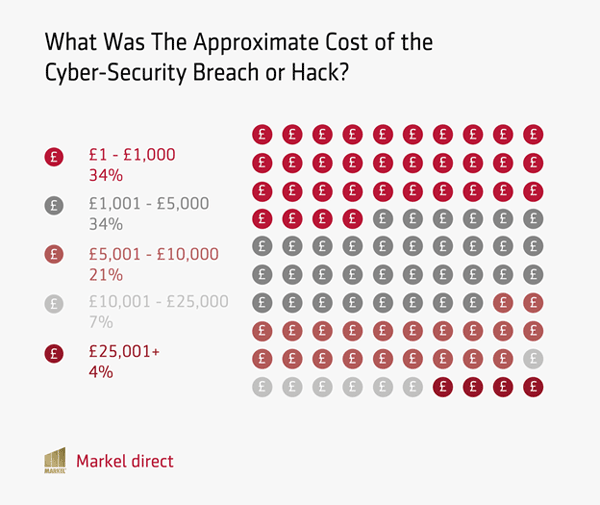How much could a cyber-attack cost a freelancer?
Cyber-crime continues to be a major concern for freelancers and small business owners with as many as 51% falling victim to a cyber security breach. How much could one cost you?
In a survey that polled 1000 respondents, self-employment insurer Markel Direct found the most common cyber security attacks were malware/virus related (24%) followed by a data breach (16%) and phishing attack (15%).
The findings come off the heels of the latest Quarterly Fraud and Cyber Crime Report which revealed that Britons lost over £1 billion in the first six months of 2021, due to the considerable increase in fraudulent activity.
Do hackers even bother attacking freelancers and small business owners?
According to Rob Rees, Director of Direct and Partnerships from Markel Direct, cybercriminals often target the self-employed and SMEs, as they lack the resources that large businesses have to invest in cyber security.
“SMEs and the self-employed who become targets of a cyber-attack can end up facing financial and operational consequences, of which some may never recover from,” said Rees.
“Though the costs of cyber security and cyber insurance may seem unnecessary to some businesses, the true cost of reported losses across the UK that we were able to highlight in our study shows the impact it can have,” he said.
Rees added that the consequences can be devastating to smaller businesses that may not be able to recover from the financial impact of a cyber-breach and at the same time lose the trust of their customers.
For example, breaches on SMEs and the self-employed not only affect the security of their data but can also have a significant financial impact through legal action that could be taken by third parties and interruption to business activities.
Over two-thirds (68%) surveyed reported the cost of their breach was up to £5,000.
What are freelancers doing to protect themselves from cyber-crime?
Markel Direct’s survey explored the measures SMEs and the self-employed were taking to protect against cyber-crime. 88% of businesses had at least one form of cyber security in place (such as antivirus, firewalls, or multi-factor authentication) with 70% feeling fairly confident or extremely confident in their cyber security arrangements.
However, the respondents who did not have cyber security in place, said that cost was the main reason behind this, with 11% of respondents stating that they wouldn’t spend anything on protection.
Of those surveyed, just 21% had arranged cyber insurance as a way to protect their interests in the event of a breach or threat. Whilst relatively small businesses appear to be arranging cyber cover, the benefits of insuring against targeted cyber-attacks is significant.
Markel claims that the cost of informing clients of a data breach, restoring equipment or meeting ransom demands can be eye-wateringly high and would see a business have to meet these costs themselves if they don’t have cover in place.

Cyber insurance: the new must-have for freelancers? – Freelance Informer
Did you know IPSE members can take advantage of regional cybercrime updates?


